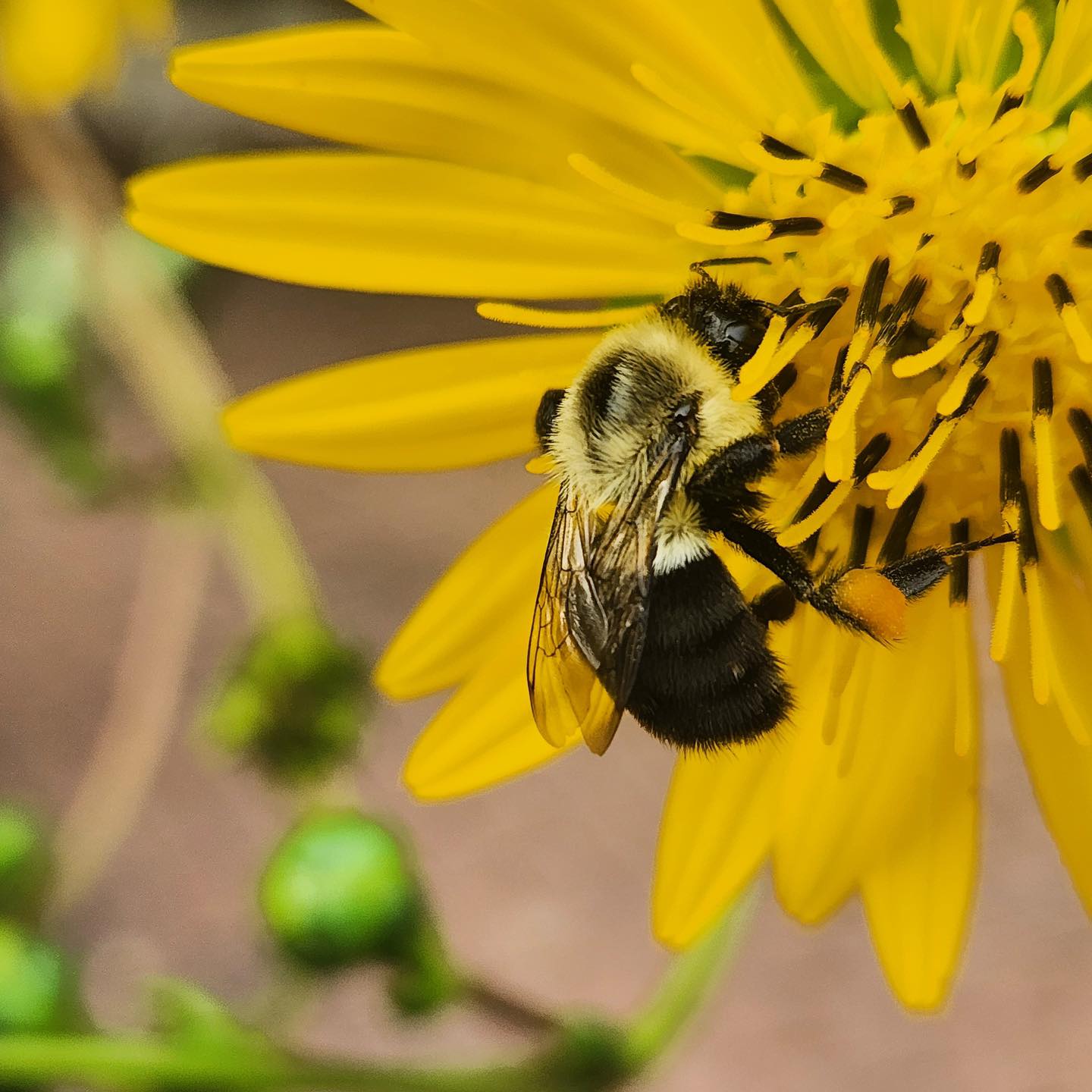- Importance of bees as pollinators and their role in ecosystems
- Diversity of bee species in Missouri, with a focus on native bee diversity
- Threats facing Missouri’s bees and the implications for biodiversity and agriculture
- Conservation efforts and initiatives to protect bees in Missouri and beyond
- Educational outreach and events, like Missouri’s annual Bee Jubilee, to raise awareness about bees
Bees serve as essential pollinators in ecosystems around the globe, fostering a flourishing environment that sustains countless species, including humans. World Bee Day highlights the significance of these invaluable insects and acts as a call to action to support and protect bee populations. This spotlight is particularly relevant to Missouri, a state boasting an impressive lineup of more than 400 species of native bees. Each species contributes to pollinating plants, contributing to a diverse and robust environment.
The diverse bee species in Missouri range from the industrious honeybee, recognized widely for its honey production, to solitary species like mason and leafcutter bees, which play just as vital in pollination. Many of these bees have evolved alongside native plants and are specially adapted to pollinate them, making their health and proliferation integral to conserving Missouri’s natural plant diversity.
However, bees face numerous threats, including habitat loss, climate change, pesticides, and diseases, which can decimate populations and destabilize ecosystems. Habitat loss, due to human development and agricultural practices, strips away the resources bees need to survive. Furthermore, climate change alters flowering times and the availability of food sources, creating an ecological mismatch between bees and the plants they pollinate. Pesticides, particularly neonicotinoids, have been linked to bee declines, negatively affecting their ability to reproduce and resist disease.
The implications of declining bee populations are alarming, with potential ripple effects on biodiversity and agriculture. Crops such as fruits, nuts, and many vegetables rely on bees for pollination and could see reduced yields without their winged assistance, resulting in economic losses and food scarcity.
Conservation efforts to protect these pollinators include habitat restoration projects, the reduction of pesticide use, and practices such as planting bee-friendly gardens. More sustainable agricultural methods are also being implemented to lessen the impact on bee populations. In Missouri and elsewhere, research into the health and dynamics of bee communities is critical, leading to better strategies to safeguard them.
Educational initiatives such as Missouri’s annual Bee Jubilee serve as valuable platforms to foster greater awareness and community involvement. During these events, individuals can learn about bees’ astounding organizational systems, lifecycle, and pivotal role in the environment. They also provide opportunities for people to engage directly in conservation activities, such as learning to create habitats that support bee populations or participating in citizen science projects.
World Bee Day celebrates these magnificent pollinators but also reminds us of our responsibility to protect them. It’s an opportunity to foster a connection between the public and the buzzing workforce that underpins much of life on Earth. Enlightening educational events such as the Bee Jubilee empower people to take action and contribute locally and globally to conservation efforts. Holding such events emphasizes that every individual has the potential to make a difference in protecting our vital bee populations for future generations.
In this light, it’s clear why support for World Bee Day and Missouri’s Bee Jubilee is instrumental. It’s a statement of commitment to the well-being of our planet’s ecosystems and agricultural bounty and a showcase of the state’s rich biodiversity and leadership in bee conservation. The beauty and intricacy of Missouri’s bee species are a subject of wonder and a crucial component of a resilient natural world. Their conservation is an ongoing challenge calling for informed understanding, collective action, and a dedicated focus on the harmonious balance of our shared environment.
*****
Source Description
It’s World Bee Day! 💛 🐝 🖤 Did you know that Missouri is home to more than 400 species of native bees? Save the date for our annual Bee Jubilee, on Aug 18, to learn more about these un-BEE-lievable animals.
📷: Nicole Pruess


